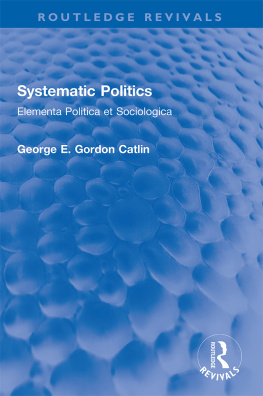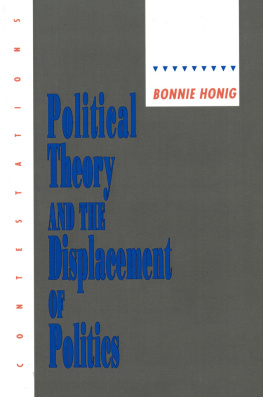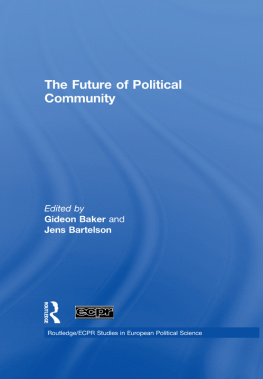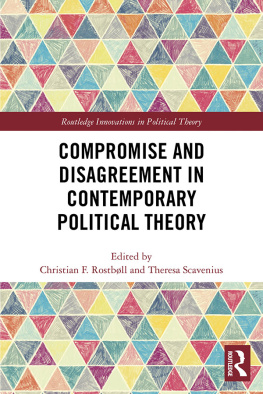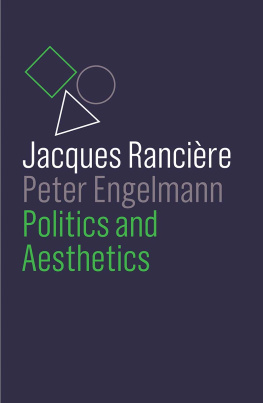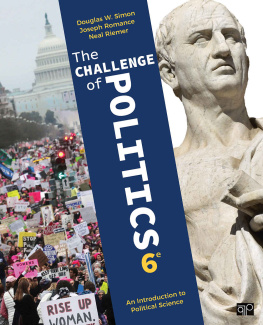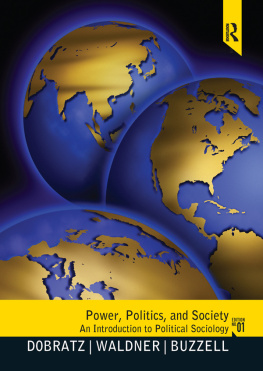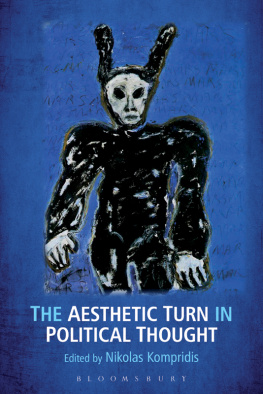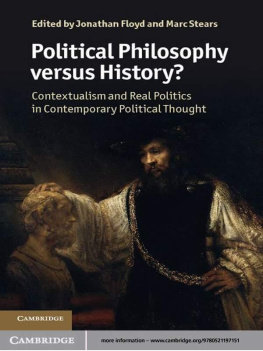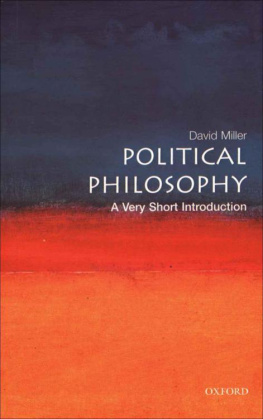First published in 1962
by George Allen & Unwin Ltd.
This edition first published in 2021 by Routledge
2 Park Square, Milton Park, Abingdon, Oxon, OX14 4RN
and by Routledge
605 Third Avenue, New York, NY 10017
Routledge is an imprint of the Taylor & Francis Group, an informa business
1962 George E. Gordon Catlin
All rights reserved. No part of this book may be reprinted or reproduced or utilised in any form or by any electronic, mechanical, or other means, now known or hereafter invented, including photocopying and recording, or in any information storage or retrieval system, without permission in writing from the publishers.
Publishers Note
The publisher has gone to great lengths to ensure the quality of this reprint but points out that some imperfections in the original copies may be apparent.
Disclaimer
The publisher has made every effort to trace copyright holders and welcomes correspondence from those they have been unable to contact.
ISBN 13: 978-0-367-67888-3 (hbk)
ISBN 13: 978-1-003-13326-1 (ebk)
This book is concerned to do two things. It seeks to restate the position in political theory taken by the writer in the years 1924 to 1930. This might seem an idle occupation were it not the case that the pioneer position then takenboth as touching the nature of politics and the appropriate area of its field, and as to the importance of the study of power, precisely defined, as a clue to the systematic interpretation of this areahas been massively enough sustained by the work of subsequent students of politics, some of whose work is of indisputable weight.
Secondly, and consequently, while recording my debt to earlier writers such as Professors Graham Wallas and Robert MacIver and to deeply valued colleagues such as Professor Harold D. Lasswell, the task has been undertaken of reviewing this subsequent relevant work and of refashioning and giving increased body to the theme, thanks to the labours of these many other students. This is indeed the fourth volume of a series which, taken together, seeks to outline a Systematic Politics.
In many cases, naturally enough, the other workers in the field are not to be supposed to agree with my theories nor always I with theirs. If, in the supporting and critical material, here printed, I have perhaps written out my own theme too little and, in the opinion of some, in almost scholastic style quoted too much, my defence must be that, in building a science, what matters is not to claim or dispute about originality, but to build up the structure, brick by brick, on well-laid foundations.
However, since it has been suggested that what was perhaps the distinctive approach in the campaign 'to take political science seriously,' instead of apologizing for the subject as inherently unscientific, was an approach exclusively conditioned by the American historical and political scene, it is perhaps desirable to state uncompromisingly that most of my personal contribution to this work was first drafted in England, even if it was developed (with every encouragement, for which I am immeasurably grateful) in Cornell. It owed its origin primarily to a very ancient and Old World source, to wit the writings of Thomas Hobbes (upon whom the author wrote a monograph in 1922, being an Oxford University prize essay), vivified by consideration of the clinical work, on the interest in power, of Alfred Adler. Assuredly, Thomas Hobbes was not a tree that grew in Brooklyn. I hasten to add that the political philosophy of the writer neither was nor is Hobbesian nor positivist. This my History of the Political Philosophers, being the third volume in the connected whole, amply shows.
The present book is not, of course, limited to the two themes above mentioned, the nature of politics and the study of power. Other discussions, already outlined in the original work, are elaborated further, such as the stress upon the methodological identity of Political Science and Sociology, the separation in political theory between Political Science and Political Philosophy, the stress upon quantitative measurement, the functional approach, equilibrium theory and the theory of the political market, the importance of recurrent patterns, the concern for power expressed through pressure groups, and so forth. Perhaps, above all, the enunciation should be mentioned of what is hoped to be a coherent and systematic theory of the relation of freedom and authority, from which any notion of schematic 'laws' in politics must stem. The idea of such laws is, it need scarcely be said, very old in political theory. And, when it has been possible to call attention to the sober simplicity and clarity of Aristotle as a model, this has deliberately been done. At least Aristotle was not the victim, like nineteenth-century jurists, of obsession with theories about the modern nation states, taken as unchangeable data, and their sovereignties.
It is not, however, the view sustained in this book that the political theorist has completed his task when he has sought to advance
Thomas Hobbes (Oxford: Blackwell, 1922).
empirical political science and has made a study of means alone. There are indeed many competent theorists in the field of political philosophy and here pioneering undertakings are less rare. Nevertheless, in an abbreviated form and perhaps rather as headlines for later discussion, a number of suggestions, some Thomistic and some otherwise, about the valuational issues of today have been put forward. The final problem of power is that of the transcendence of power, without ignoring reality. This is discussed in the concluding chapter.
I am, of course, well aware that there are many matters, legitimately the concern of the political theorist and even of the highest importance, which for reasons both of space and design, have here been omitted. It is perhaps proper to add, autobiographically, that I have personally been more concerned with political and ethical philosophy than with political science. I may also say that my interest in this last, and in the analysis of social structure, has sprung from very practical consideration of issues of peace and war, meditated upon in 1918 outside Mons. It has not been my view that practical and effective solutions can be offered without a far more fundamental structural analysis than obtained in academic quarters, at least at that time.

